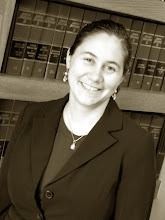
At Shankman & Associates we are experts in Bankruptcy. We have been helping our clients file for bankruptcy since 1981. Neil Shankman, the founder of our firm, is the Maine representative for
NACBA (National Association of Consumer Bankruptcy Attorneys). We know this is one of the toughest but often necessary decisions you will make. We can navigate this decision with you.
FAQ'S: Does a person lose all of his or her property by filing under Chapter 7?Usually not. Certain property is exempt and cannot be taken by creditors, unless it is encumbered by a valid mortgage or lien. A Debtor is usually allowed to retain his or her unencumbered (or unsecured) exempt property (see Question 29 below). Depending on the law of the local state, property that is exempt in a Chapter 7 case may be either property that is exempt under state law or property that is exempt under the Bankruptcy Code.
What property can be claimed as exempt?Because one of the goals of bankruptcy is to give the Debtor a fresh financial start, Debtors are allowed to retain certain exempt items of property. The values listed below are for a single Debtor. If a husband and wife file together, the amounts double. The exemptions apply only to equity (how much it is worth minus how much you owe) in real property or personal property
In Maine, the following exemptions apply:
* Residence. $100,000.00 in real estate which serves as a residence, unless the Debtor is over 60 or disabled, in which case the exemption is $200,000.00;
* Motor vehicle. The Debtor's interest of $5,000.00 in one motor vehicle;
* Clothing, furniture, appliances and similar items. The Debtor's interest, not to exceed $200.00 in any particular item in household furnishings, household goods, wearing apparel, appliances, books, animals, crops or musical instruments held for personal, family or household use;
* Jewelry. The Debtor's wedding ring and engagement ring (no matter how valuable), as well as the Debtor's aggregate interest in all other jewelry up to a total of $750.00 held for personal, family or household use;
* Tools of the Trade. The Debtor's aggregate interest of $5,000.00 in any implements, professional books or tools of the trade of the Debtor;
* Furnaces, stoves and fuel. The Debtor's interest in the following items held primarily for the personal, family or household use of the Debtor or a dependant of the Debtor; one cooking stove; all furnaces or stoves used for heating and all cooking and heating fuel not to exceed 10 cords of wood, 5 tons of coal or 1,000 gallons of petroleum products or its equivalent;
* Food, produce and animals. All food provisions reasonably necessary for six months; all seeds, fertilizers, feeds and other material reasonably necessary to raise or harvest food through one growing season; all tools and equipment reasonably necessary for raising and harvesting food;
* Farm equipment. The Debtor's interest in one of every type of farm implement reasonably necessary for the Debtor to raise and harvest agricultural products commercially;
* Fishing boat. The Debtor's interest in one boat, not exceeding five tons burden, used by the Debtor primarily for commercial fishing; (j) Life insurance contract. Any unmatured life insurance contract owned by a Debtor other than a credit life insurance contract;
* Health aids. Professionally prescribed health aids for the Debtor or a dependent of the Debtor.
* Disability benefits; pensions. The Debtor's right to receive Social Security benefits, unemployment compensation, veteran's benefits, disability, illness or unemployment benefits, alimony, support or separate maintenance, or a payment under a stock bonus, pension, profit sharing, annuity, or a similar plan or contract on account of illness, disability, death, age or length of service to the extent reasonably necessary for the support of the Debtor and any dependent of the Debtor;
* IRA account. A payment or account under an individual retirement account or similar plan or contract on account of illness, disability, death, age or length of service to the sum of $15,000.00 or to the extent reasonably necessary for the support of the Debtor and any dependent of the Debtor, whichever is greater.
* Legal awards; life insurance benefits. Debtor's right to receive an award under a victim's reparation law, a payment on account of the wrongful death of an individual of whom the Debtor was a dependent, to the extent reasonably necessary for the support of the Debtor and any dependent of the Debtor; a payment under a life insurance contract that insured the life of an individual of whom the Debtor was a dependent on the date of such individual's death, to the extent reasonably necessary for the support of the Debtor and any dependent of the Debtor; a payment up to $12,500.00 on account of personal bodily injury, not including pain and suffering or compensation for actual pecuniary loss, of the Debtor or an individual of whom the Debtor is a dependent or a payment in compensation of loss of future earnings of the Debtor or an individual of whom the Debtor is or was a dependent, to the extent reasonably necessary for the support of the Debtor and any dependent of the Debtor.
* Other property. The Debtor's aggregate interest, not to exceed $400.00 in any property, whether or not otherwise exempt; and
* Unused residence exemption. The Debtor's unused residence exemption up to $6,000.00 in any item of clothing, furniture, or appliances, tools of the trade or legal awards for personal bodily injury.
Log on to
shankmanlegal.com to learn more or give us a call @207.786.0311 today.

 Attorney Neil Shankman is a perennial favorite and has spoken most every year at this conference. He has written several books on Landlord/Tenant Law and his latest book, Maine Landlord-Tenant Statutes and Commentaries is being revised and updated and will be available in the late fall of 2009.
Attorney Neil Shankman is a perennial favorite and has spoken most every year at this conference. He has written several books on Landlord/Tenant Law and his latest book, Maine Landlord-Tenant Statutes and Commentaries is being revised and updated and will be available in the late fall of 2009.












